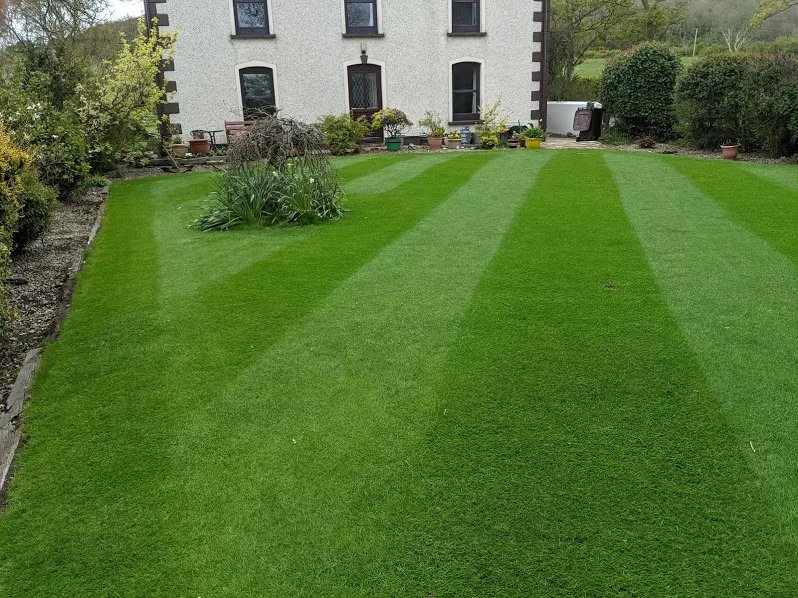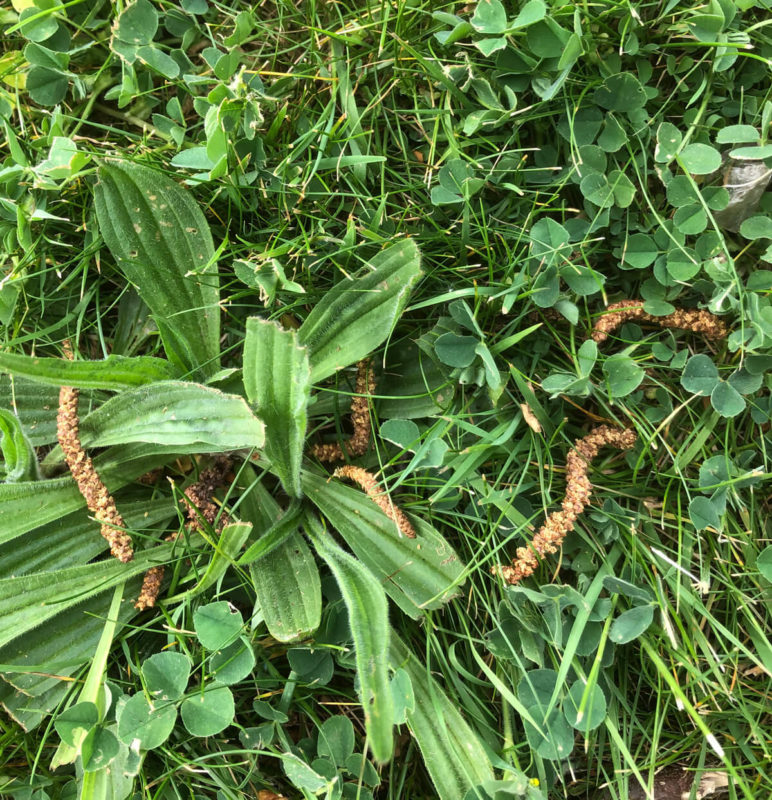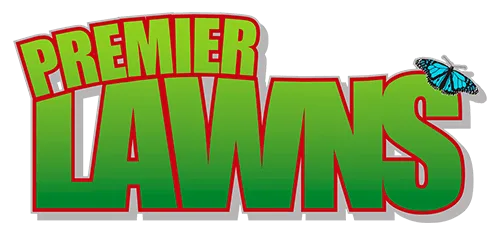What is the best weedkiller for your lawn? Robbie takes a look at what’s available to buy and advises on how to get best value from lawncare products.
More and more I’m seeing a move towards allowing a wee bit more biodiversity in lawns. If you can live with a few extra species, it’s a great way to save stress for yourself and to give local wildlife a much needed boost. But if you’re aiming for a grass sward with a nice even colour and texture, you’ll want a way to get rid of unwanted plants.

If you are dreaming of a weed free lawn, this article is for you.
The Best Weedkiller For Your Lawn Is YOU
I’m a big believer in minimising the use of any sort of pesticide or herbicide on lawns. If you get the growing conditions right for the grass, then the sward will be so thick that only the bravest of weeds will try to infiltrate. What does that mean?
- Mow little and often
- Care for the soil beneath your lawn to encourage vigorous grass growth
- Feed your lawn regularly
- Boost fertiliser applications with seaweed treatments to help reduce the risk of common lawn diseases
- Aerate and scarify your lawn at least once a year
- Overseed bare patches with the right grass species for the conditions eg shade tolerant, drought tolerant
- Remove weeds by hand if necessary
Hand Weeding
Weeding your lawn by hand is surprisingly satisfying. OK, so it may take a wee while, especially if there are more weeds than you anticipated. But if you use a weed puller you are less likely to get back ache and the job is a lot less onerous. Take a look at this video to see how easy it is to use.
Getting Rid Of Weed Seedlings In Your Lawn
If you’ve ever had a bare patch in your lawn invaded by a rash of weed seedlings you’ll know that hand weeding is just not practical. There are far too many of them to pluck out one by one. And the horror of realising that green fuzz on your newly seeded lawn is 50% weeds is an awful feeling. However in the majority of cases, those weed seedlings will be from annual plants. (‘Annual’ means that the plants grow, flower, set seed and die within the space of 12 months.)
There’s one thing that annual weed seedlings really don’t like. Mowing. In this case, the best weedkiller for your lawn is your mower. Instead of reaching for the herbicides, sharpen up the blades on your mower and slice the tops off those pesky weeds. Normally it only takes 2-3 cuts for the weeds to weaken and die and then the grass will take over. There’s no need to get the mower out of the shed specially – just maintain your normal mowing regime and annual weeds will soon disappear.
The Best Weedkiller For Very Weedy Lawns

If you are renovating a lawn, you may feel that there are just too many weeds to pluck out by hand. And I get that. I’ve done a few lawn renovations in my time and when faced by a sea of dandelions and daisies I normally take drastic action.
When a lawn is very weedy, there’s usually a reason for it. And 9 times out of 10 that reason lies within the soil structure. Compaction makes the soil inhospitable for grass but perfect for perennial weeds with strong root systems. Dandelions, daisies, docks, moss, yarrow and plantain are all beautiful wildflowers that have adapted to living on tough conditions. In fact Native North Americans called plantains “white mans footprints’ because it thrived on the footpaths frequently used (and therefore compacted) by the settlers.
In these cases, I’ll assess the lawn and if the weed coverage is more than 40% I’ll be inclined to kill everything off and start again. That will give me a good opportunity to get rid of weed grasses as well as aerate the soil and improve growing conditions for the new grass seed.
When weed coverage is 20 – 40% I’ll consider using applying treatment of herbicide. It’s not something I like doing, but if my client is paying me by the hour, hand weeding is not very cost-effective for them.
For a sprinkling of weeds, spot treatment with herbicide is best. It’s always better to avoid introducing chemicals into the soil or the environment if you possibly can.
Which Weedkiller Should You Choose?
There are several herbicides available to buy from garden centres. But which of those will be the best weedkiller for your lawn?
First of all, identify the weeds you want to remove. There’s no sense in using a herbicide if it won’t affect the plants you want to get rid of. Then do your research to find out which herbicide will tackle which weed.
Killing off the entire lawn? Grass and all? Look for the active ingredient called Glyphosate. For goodness sake be careful how you apply it though. It kills almost every type of plant so the slightest bit of wind drift could damage your flowers, fruit and veg plants. Worst of all – it could drift into your neighbour’s garden and get you in a whole lot of trouble.
A good selective herbicide is MCPA. That’s not a brand name, thats the name of the active ingredient. When you are browsing the shelves at your local garden centre, it’s the active ingredients you should be interested in rather than the brand names or the marketing hype.
MCPA is brilliant at targeting broadleaved weeds without killing grass. But there are a few weeds it won’t tackle. For example it’s great on thistles and young nettles but no good on cleavers.
Fluroxypr is for cleavers
Clopyrialid is particularly tough on clover, cleavers, groundsel, mayweed and increases the effectiveness of MCPA when the two are mixed together
Mecaprop PR is also a good allrounder but again, it doesn’t work on all weeds. Chickweed, clover and plantains will all be killed by this chemical.
Most of these chemicals are toxic to fish and other aquatic animals, so please be careful around ponds and waterways.
Please do not mix any of these chemicals together yourself – the results could be very nasty indeed. Look for pre-mixed herbicides that are easy to apply. Spray bottles are perfect for spot treatments but in any case, follow the manufacturers instructions to the letter. And don’t forget to wear the right PPE.
Better still, if your lawn is in a bad way, ask a lawn care professional for help. These people have access to commercial grade herbicides and they have the training and equipment to apply them safely. Much better than messing about and potentially making a big mistake.
PLEASE NOTE: As more research is done and we learn more about the environmental consequences of using herbicides, some products are removed from sale and others are developed. Information in this article is correct at the time of writing but please check the facts before buying or using weedkiller.
Always consult a professional if you are not 100% sure about which chemicals to apply or how to apply them.
Want To Know More About Controlling Weeds In Your Lawn?
These articles will help.
A beginners guide to getting rid of lawn weeds
This article looks deeper into the reasons why you have weeds in your lawn and how to resolve the problem. Lawn weeds tell me what your lawn needs

